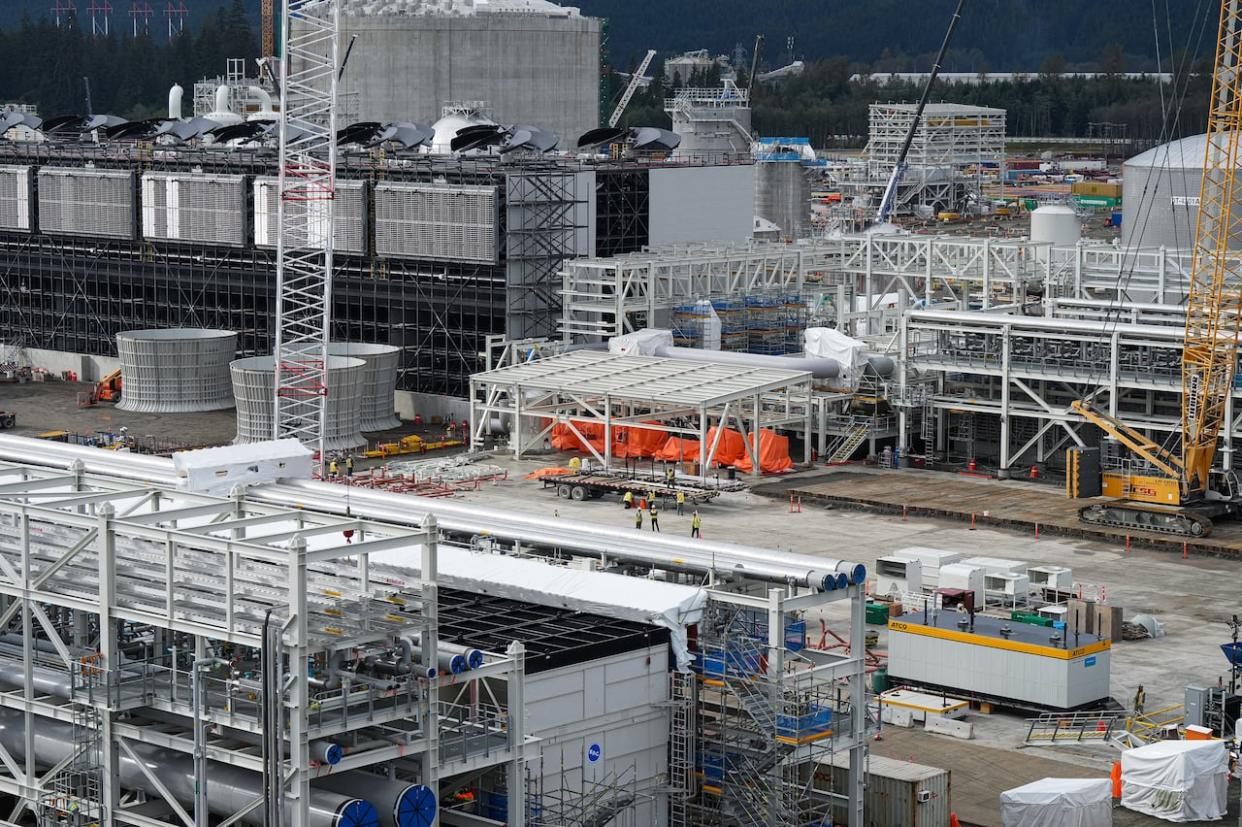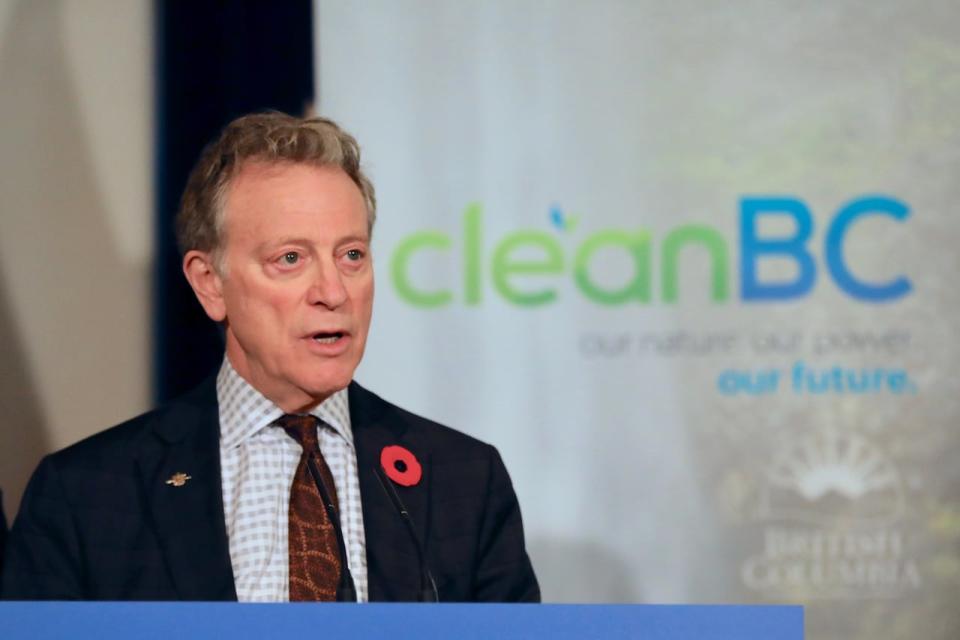B.C. environment minister hails climate progress but advocates say LNG growth risks it all

B.C.'s environment minister says 2023's progress report on greenhouse gas reductions shows the NDP government's climate plan is working but environmental groups warn continued development of the liquefied natural gas sector could reverse those reductions.
The report, released Thursday, stated net emissions — emissions minus carbon sequestered by forest management — in 2021 were down four per cent from 2007, the year B.C. uses as a baseline for its targets, and down five per cent since 2018 when the CleanBC plan was launched.
It also notes the province has cut oil and gas methane emissions by 50 per cent, surpassing a goal of 45 per cent by 2050, and that 22 per cent of new vehicles sold are zero-emission, exceeding a goal of 10 per cent by 2025.
"We continue to be on the right path to meet our ambitious emissions-reductions targets, even as our population and our economy have both grown," Environment Minister George Heyman said in a statement accompanying the report.
"By continuing to accelerate thoughtful, effective CleanBC policies and by making more investments in clean economic growth, we are confident that we can meet our climate targets and contribute to a secure and more affordable future for British Columbians."

B.C. Minister of Environment George Heyman is pictured in 2020. He said Thursday that he is confident B.C. is heading in the right direction on climate targets. (Michael McArthur/CBC)
But several environmental groups warn that if the province continues to expand LNG projects, the targets will become nearly impossible to meet and climate progress will go up in smoke.
'We've already built enough'
The David Suzuki Foundation said CleanBC stands out as a "leading climate plan in Canada" with policies focusing on affordability, but LNG growth jeopardizes it.
"B.C. will have a good chance to meet 2030 emissions targets if it reins in support for liquefied natural gas development and focuses on seizing growing opportunities in the clean economy," Tom Green, a senior climate policy adviser with the foundation, said in their statement.

A stove sits among the remains of a structure that burned in a wildfire on the Ashcroft First Nation near Ashcroft, B.C. David Eby has said more climate action is coming, citing the devastation from disasters such as wildfires. (Darryl Dyck/The Canadian Press)
Stand.earth went further, saying Thursday's report suggests B.C. will not hit climate targets for 2025 and 2030.
Construction of any of three provincially-permitted facilities or two facilities currently under review would move B.C. farther away from its goals, it said.
"That is why we are calling on Premier [David] Eby and the B.C. government to stop issuing new permits for fracking wells and other new fossil fuel expansion projects," the group's oil and gas program director Sven Biggs said in the statement.
Matt Hulse, a lawyer with Ecojustice, agreed, saying he couldn't see the targets being met with any more LNG projects built.
"We've already built enough if we want to meet the global climate commitments of limiting global warming to 1.5 C," Hulse said in a phone interview. "It's certainly concerning. I don't think I can underscore that any more."
Premier says more climate action coming
CBC was told Heyman was not available Friday afternoon due to his schedule at the COP28 meeting in Dubai.
The last weeks of the legislative session have seen the NDP's CleanBC climate plan become a focus for opposition parties.
B.C. United Leader Kevin Falcon has called the plan destructive and promised to end the carbon tax on many fuels. His party, then named the B.C. Liberals, first introduced the tax.
The Conservative Party of B.C. promises, if elected, to scrap the carbon tax, roll back climate-friendly building codes and consider nuclear power.
The Canadian Association of Petroleum Producers says B.C. oil and gas is a massive economic opportunity expected to earn the government $2.8 billion through land sales and royalties in 2022-23.
The association also says the province already has "exceptional standards" for LNG greenhouse gas efficiency through methane reduction and electrification.
Eby has said more climate action is coming, citing the devastation from disasters such as wildfires and atmospheric rivers.
Hulse says more action is necessary, especially a cap on oil and gas emissions, which the government says it is developing.
"That's an opportunity for the B.C. government to lay down a marker and say we're going to hit those targets," Hulse said.
In a statement Sunday, a spokesperson for the environment ministry says that they will work with the federal government to ensure any work on an emissions cap is coordinated.
"B.C. looks forward to further details of the federal emissions cap this year," the spokesperson said in a statement, adding that it was continuing to work with First Nations and industry partners on how the proposed cap would go into effect.


